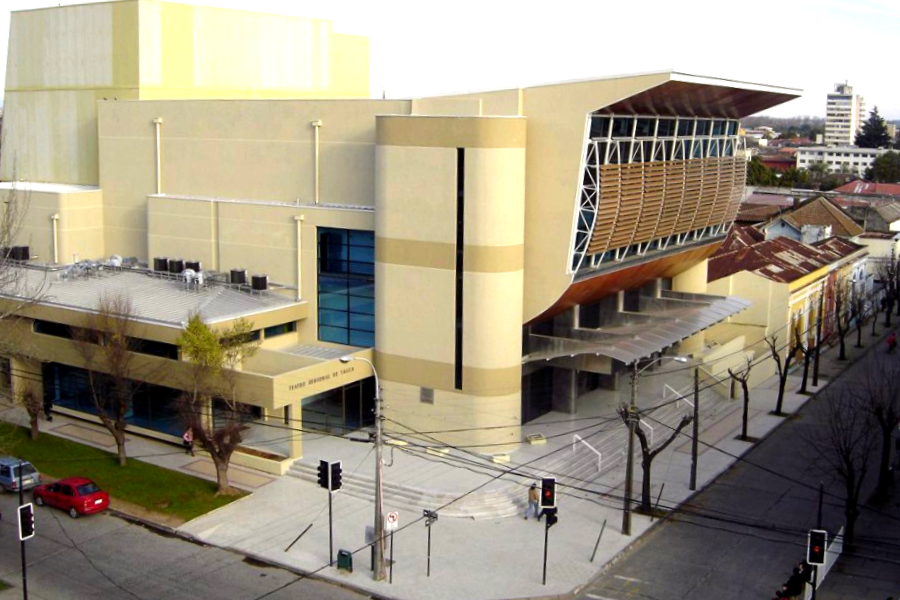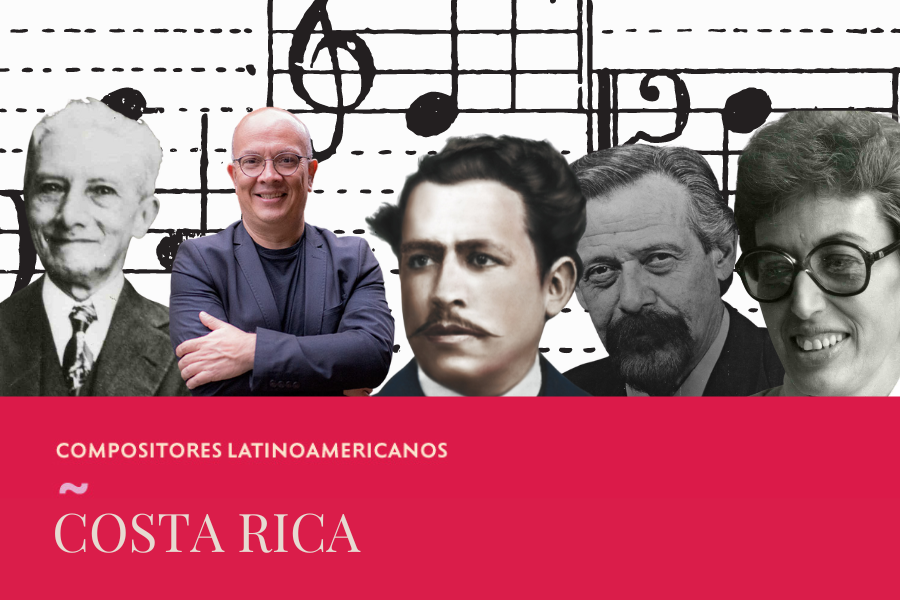Gender Perspectives in Ibero-American Theatres
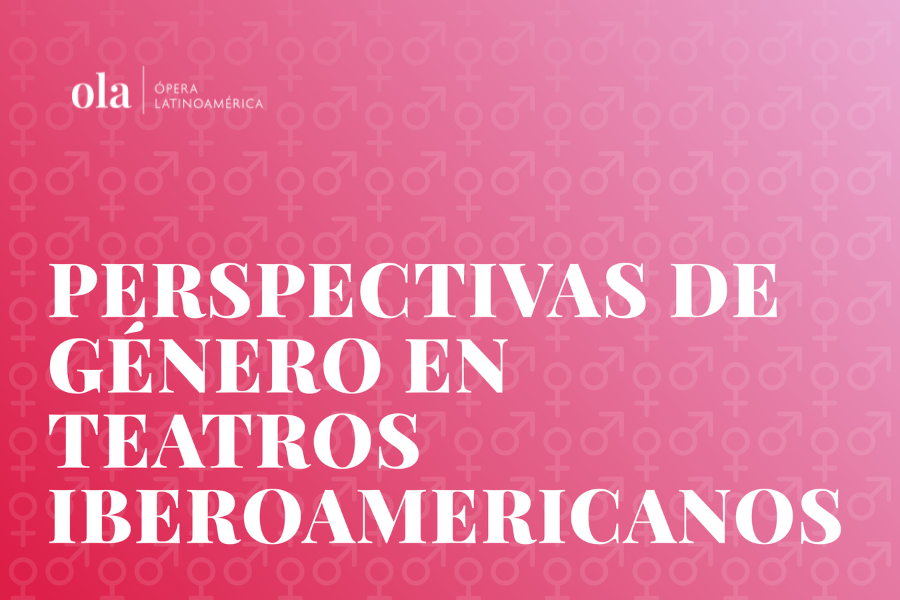
From equal pay, work-life balance, to protocols to eradicate violence and harassment and programmatic emphases, the theatres that are part of Ópera Latinoamérica (OLA) have embarked on strategies to create gender-responsive workplaces. It is a process that is not isolated, as the participation of women has grown in management positions of the organizations.
“The participation of women in the entire opera production chain has been growing every year and leaving in the past the unique reference of opera singing stars. Today we play artistic, technical and leadership roles.” The words of Flávia Furtado, executive director of the Festival Amazonas de Ópera, provide a clue about the current role of women in the creative industries, particularly in theatres and opera.
The study Gender Gaps: Women’s Work in Cultural and Creative Sectors published in 2023 by the Inter-American Development Bank (IDB), analyses the existing gender gaps for women workers in the cultural and creative industries in Latin America. “The range of female participation in this sector ranges between 40% and 45% in the five countries that have information [Argentina, Brazil, Chile, Mexico and Uruguay]”. The same IDB study points out that, compared to other sectors such as agriculture or industry, the creative economy has a greater participation of women. However, it also indicates that this participation entails challenges in terms of gender equality “that exacerbate the structural conditions of the cultural and creative sector: such as instability, informality and precariousness”.
In the current scenario, gender equality has become an objective for formulating public policies and generating strategies that incorporate gender perspectives and move towards greater equity in the different areas of work. “Equal opportunities and equal rights is a responsibility that we have assumed,” says Adela Dubra, president of the Auditorio Nacional del Sodre, from Montevideo. “All of us, at some point in our professional development, have faced gender stereotypes related to a masculine idea of the technical function in a theatre. We have all persevered in our vocation,” she adds.
“The participation of women in the entire opera production chain has been growing every year and leaving in the past the unique reference of opera singing stars” — Flávia Furtado, executive director of the Festival Amazonas de Ópera
In 2015, the United Nations (UN) established the Sustainable Development Goals (SDGs), which include targets to be met in various areas, including gender: Goal 5 is defined as “achieving gender equality and empowering all women and girls”. This has served as a guide for leaders and organizations around the world, including cultural organizations such as the Teatro Mayor Julio Mario Santo Domingo. Other institutions have made progress with the definition of gender policies that emanate from a state mandate, set of laws or public policy. There are also theatres and companies in which policies respond to initiatives and emphases driven by management and administrative teams.
In general, there are three axes that address gender issues in the management of theatres: working conditions, protocols for cases of harassment and abuse at work and sexual, and content and programming to promote the presence of women and reduce gender gaps in the artistic offer.
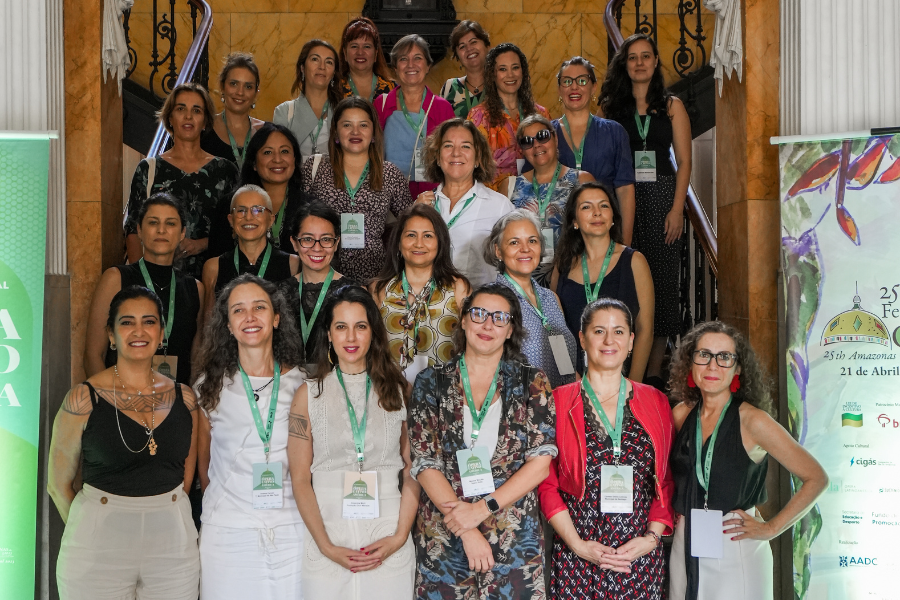
Women in Opera Forum, inaugurated at the 16th Annual Latin American Opera Conference held in 2023 in Manaus, Brazil.
Working conditions
Since 2020, the Decreto Real 902/2020 has been in force in Spain, which aims to establish specific measures in each company to make effective the right to equal treatment and non-discrimination between women and men in terms of remuneration. Thus, every company – regulated in the revised text of the Workers’ Statute Law – must establish, as part of the company’s policy, transparent job evaluation methodologies, identify, evaluate, correct and prevent non-objective pay differences and detect possible discriminatory practices based on sex, among other applications.
At Teatro Real, for example, the remuneration policy was analysed with a focus on gender analysis “in such a way that it has been possible to establish the commitment and the principle of internal pay equity by which employees are being paid according to the ‘value’ that the company gives to their job within the organisation”. according to reports from the Madrid theatre, which has developed an Equality Plan in recent years to address its internal gender policies.
Also in Spain, but in the city of Seville, Teatro de la Maestranza is in the process of drawing up its own Equality Plan, in accordance with the Spanish constitutional principles of equality, as well as merit and ability. “Our working conditions are regulated in the collective agreement and its application is equal for all, men and women. In the same way, access to jobs occurs by objectifying merit and ability in profiles or scales in public calls that are applicable to both men and women,” they indicate.
In Uruguay, Auditorio Nacional del Sodre, as part of the Uruguayan Ministry of Education and Culture, also participates in the ministry’s Gender Unit, chaired by Undersecretary Ana Ribeiro. The president of the institution, Adela Dubra, is the fourth woman to hold the position in the 95 years of existence of the organization and explains that “the salary policies are equitable and without distinction of gender.” Currently, 13 out of 21 directorates in Sodre are led by women; “If we take into account the total number of people working in our theatres and training schools, the majority are women,” says Dubra.
A similar approach exists at the Teatro Teresa Carreño, a foundation dependent on the Venezuelan state, which has moved toward greater participation of women in its staff. According to a recent analysis by its human resources department, 66% of theatre workers are women. In terms of management positions and the so-called “high-level payroll”, 23 out of 48 of these positions at the Teatro Teresa Carreño are held by women.
This increase in the participation of women, both in workers’ payrolls and in management positions, is also shared by theatres that do not depend on public institutions, such as Teatro Sánchez Aguilar (Guayaquil, Ecuador) and Teatro del Lago (Frutillar, Chile). The Ecuadorian organization maintains that “in terms of salary policy, there is no gender difference, everyone is paid equally and, in general, we have many more women than men in the team, especially in leadership positions.” Meanwhile, the Chilean institution declares that “many of the senior roles are led by women and this is how the technical, commercial, communications, artistic training programs, among others, incorporate the perspective of women, in addition to the male gaze in the various existing teams.”
“All of us, at some point in our professional development, have faced gender stereotypes related to a masculine idea of the technical function in a theatre. We have all persevered in our vocation.” — Adela Dubra, president of the Auditorio Nacional del Sodre
Another organization that has ensured working conditions with a gender perspective is Teatro del Bicentenario Roberto Plasencia Saldaña. The theatre is part of the Cultural Forum of Guanajuato, Mexico a state that in 2013 issued the Law for Equality between Women and Men. The purpose of this decree is to establish the responsibility of the State and municipalities to ensure a regulatory framework that makes equal treatment between men and women effective; establish coordination for the integration and operation of the System for Equality; and to promote the mainstreaming of equality between women and men. “Generating narratives aimed at the construction of more egalitarian societies free of violence for women is part of the actions that the State Government has carried out to reduce the stereotypes that affect the development of women,” according to the information provided by the Mexican theatre.
In its gender policy, Teatro Municipal de Santiago, Chile considers a dimension that seeks gender equality from more structural conditions: “It is especially relevant to reconcile the personal, work and family co-responsibility of women, men and diversities, for which the Cultural Corporation of the Illustrious Municipality of Santiago is committed to generating favourable measures in terms of working hours, breaks and benefits,” says the institution’s official document. A vision that, according to the general director of the theatre, Carmen Gloria Larenas, is due to the fact that “we have a permanent commitment to offer the greatest number of opportunities and the most suitable for all women in the different areas of the theatre for their greater development”.
Returning to Uruguay, the Municipality of Montevideo, to which the Teatro Solís depends, created the Gender Unit in September 2020 to “advise the General Directors of the Department of Human Management and Material Resources and its dependencies regarding the incorporation of the gender equality perspective in policies, projects and work processes”, seeking to “prevent inequities and situations of gender violence in departmental and municipal workplaces,” according to comments from the Uruguayan theatre.
Thus, Teatro Solís, one of the oldest in South America, has joined the four lines of work proposed by the Gender Unit of Human Management: institutional strengthening and gender advocacy; addressing situations of gender-based violence, sexual harassment in the workplace, and gender-responsive interventions in the workplace; training for equality; and organizational communication for equality.
Sexual Harassment and Abuse in the Workplace
Following a series of sexual abuse allegations against prominent film producer Harvey Weinstein, in 2017 the #MeToo movement swept around the world like a wave that shook virtually every industry, particularly entertainment and culture. Under the auspices of this movement, which denounced the normalized cultures of harassment, abuse and even rape in different work sectors, awareness began to be raised about forms and protocols for prevention, restitution and punishment in situations of harassment, mainly by men against women.
Theatres were not far behind. A survey published in 2018 found that a third of theatre professionals in the UK had experienced sexual harassment at work. Different organizations took action, developing plans and strategies to address cases of sexual harassment and abuse in the workplace.
Teatro de la Maestranza, for example, establishes in its collective agreement that “the finding of the existence of sexual harassment will always be considered as a very serious offence”, and even goes further: “If such conduct or behaviour is carried out taking advantage of a hierarchical position, it will be an aggravating circumstance of that position”.
Adela Dubra, president of Sodre, is emphatic on this issue and affirms that “in our theatres and Training Schools we have acted severely in cases of harassment, working on the serious and hard investigation of the facts denounced, as well as on the prevention of situations of harassment and/or gender-based violence”.
For its part, the Teatro Solís, dependent on the Municipality of Montevideo, reports that the organization has a Sexual Harassment Unit at Work that provides a care and advice service for people who suffer this type of harassment “within the scope of the Municipality of Montevideo, and makes the referrals that it deems pertinent to other areas of the institution.”
Content & Programming
Teatro Mayor Julio Mario Santo Domingo in Colombia has committed itself to the fulfilment of SDG No. 5 of the UN, through three lines of action: promoting the presence of women in programming, implementing policies with a gender perspective to encourage the presence of women in its team and promoting gender equality, and, finally, create a protocol for the prevention, protection and care of this type of case.
As for the first line of action, Colombian theatre “has sought to include in the programme works with themes and characters that invite reflection on gender violence, femicide, motherhood and the experience of the feminine in migration, in addition to consolidating cycles and concerts that highlight female musical creation”.
In the same programmatic path, Teatro Solís designs its artistic offer thinking about four transversal axes: Ignite (Youth), Recrea (Childhoods), We Are (Diversity) and We / Nosotras (Women), the latter being one of the most present, with a high percentage of the programming crossed by the gender perspective. “The Nosotras axis includes creations and interpretations by women in all artistic disciplines. A meeting place to be, say and question. Take the stage, the movement, the word,” they report from the theatre. These axes were reinforced through an institutional and communications campaign, incorporating their respective seals to include them in the season.
Along these lines, three years ago, Theatro Municipal de São Paulo created a transdisciplinary curatorial committee to develop its artistic program. This committee was created with the aim of “developing a more balanced program that respects minorities.” Specifically in terms of the participation and programming of works created by women, in 2023 the São Paulo theatre summoned the Brazilian expert and soprano Gabriella Di Laccio as a consultant to shed light on the names of female artists who have remained on the margins of musical historiography. In fact, the theatre’s programme for 2024 reaches almost 30% of the presence of female composers, an unprecedented fact that, at the same time, is consistent with the composition of its team: 49% of the theatre’s staff are women, while 48% of leadership and management positions are held by women.
Also in Brazil, Festival Amazonas de Ópera (FAO) comments that the organization “is committed to accompanying women who play different roles within the opera sector.” Flávia Furtado, executive director of the festival for 20 years, currently develops a mentoring work with professionals Melissa Màia, costume designer from Manaus and trans woman, Mika Raicham, producer, also from Manaus, and Anna Patrícia Araújo, coordinator of artistic production at Theatro São Pedro, in São Paulo.
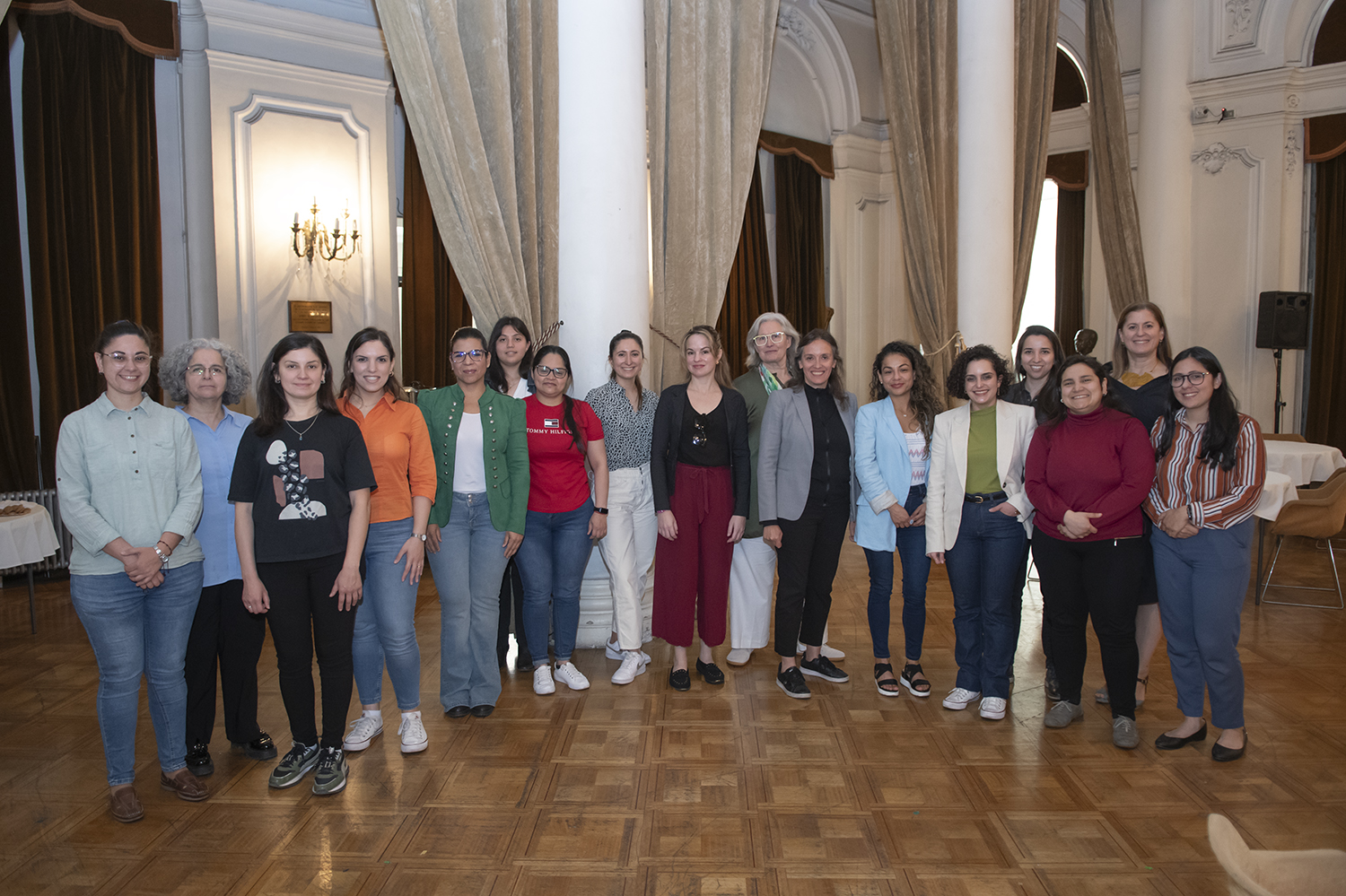
The second version of the Women Orchestra Directors Hub, organized by the Municipal Theater of Santiago, Fanjul & Ward and the Corporation of Friends of the Municipal Theater of Santiago, took place between November 21 and 25 in 2023, and brought together 17 female conductors who participated in workshops, master classes and orchestral works with teacher and orchestra conductor Alejandra Urrutia.
In a similar line, Teatro Municipal de Santiago, together with Fanjul & Ward and Amigos del Municipal, created in 2022 the Hub of Women Orchestra Conductors, an instance that seeks to expand the possibilities of development of women conductors, through training and networking activities. Directed by Alejandra Urrutia, the event is inspired by the mentoring program of American director Marin Alsop, who participated in the first edition.
A similar diagnosis in the promotion of women’s work is the one promoted by the Chilean independent company Lírica Disidente. Between 2021 and 2023, they promoted the Let’s Talk about Women Composers initiative in collaboration with the Austrian-based Chilean composer, Jubitza Guzmán Nawrath. This completely virtual initiative included talks, dialogues and concerts during its three editions, focused on the work of women composers throughout history, with an emphasis on vocal compositions. In the three editions carried out each year, the purpose was to disseminate the work of composers of written music, “as well as to make visible and debate gender inequality in the contemporary artistic field,” the company points out.
Advancing in the programming, promotion and dissemination of the creation of women and minorities is a concern that resonates in the politics of different artistic projects, both in independent companies and in theatres of different sizes. In this regard, the general director of Theatro Municipal de São Paulo, Andrea Caruso Saturino, comments that “increasing the black, indigenous, migrant and female presence in this institution has been guiding our navigation compass, in search of new worlds, more plural and definitely more inclusive”.





